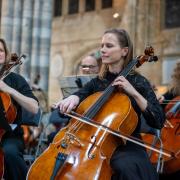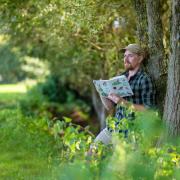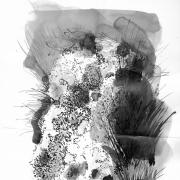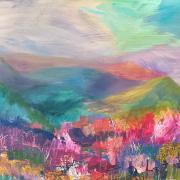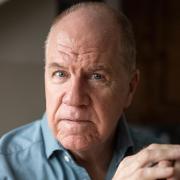Devon artist Tracy Satchwill’s Magna Carta Women celebrates 800 years of contributions to women’s rights and asks which of us will stand up next? MERCEDES SMITH talks to her about her inspiration

Ever entered into one of those arguments about what art is for? I have - of course I have - it’s my job to talk about art, and occasionally I am pounced on by some aggressor who feels compelled to persuade me that art is pointless. Okay, I will concede that some art is pointless (see ‘pretty’ pictures of ‘things’. So what.) But really great art is powerful stuff. Great art makes you think and feel, and discuss ideas. That’s all. But really what could be more important to the development of self, society and culture? Art can hold within it stories from our collective past, ask questions of our future and is a starting point for fantastically interesting and important conversations.
On show at the Devon Guild of Craftsmen this February is one such artwork, a work that engages with some of the most significant social and cultural questions of our present and our past. Recent world events such as the shooting of Malala Yousafzai in 2012, the abduction of Nigerian schoolgirls from Chibok in 2014 and currently Syria’s descent from autocracy into civil war, have pushed questions concerning democracy, individual freedoms and, in particular, the subjugation of women, back to the forefront of international politics.
Coinciding with these debates this year is the 800th anniversary of the signing of the Magna Carta, which is widely considered to have laid the foundations for modern democracy and the defence of personal freedoms. Conceived in response to the 2015 celebrations of this historic event is Devon based artist and illustrator Tracy Satchwill’s unique art project Magna Carta Women. Starting the year on show at the Devon Guild from 23 January to 1 March this important work, which has been awarded Arts Council funding, will go on to tour the south of England as part of the national Magna Carta celebrations, taking in Surrey, Hillingdon, Maidenhead - including Runnymede pop up museum, Runneymede National Trust, Royal Holloway University, Brunel University and Sarum College. Comprised of four panels created in the narrative style of the traditional stained glass window, Magna Carta Women is a collage of notable people who have made a significant contribution to the furtherment of women’s rights and freedoms over the last 800 years.
“This year we are celebrating ideas of freedom and justice,” Tracy explains. “But what about women, and their gruelling journey of obstacles, prejudices and battles for the right to vote, for equality of education, equal pay and other basic human rights? The social history of women is something I am passionate about, and I hope my art will be a platform from which to inform and inspire the next generation and teach them more about the history of women’s rights.”

Having visited the British Library to view the remaining four Magna Carta documents, and researched potential subjects for her project, Satchwill settled upon the inclusion of 47 remarkable women, including 12th century Medieval poet Marie de France; protestant martyr Anne Askew, born 1520, the only woman known to have been both tortured in the Tower of London and burned at the stake; Bathsua Makin, born 1600, writer and proponent of women’s education; Elizabeth Garrett Anderson, born 1836, the first woman physician; aviator Lilian Bland, born 1878, one of the first women in the world to design, build, and fly an aircraft; politician Nancy Astor, born 1879, the first woman to sit in the House of Commons; Marie Stopes, who in 1921 opened Britain’s first birth control clinic; Helena Normanton, born 1882, the first woman barrister at High Court; Dorothy Hodgkin, born 1910, sole winner of the 1964 Nobel Prize for Chemistry and Heidi Mirza, born 1958, one of the UK’s first black women professors.
Three men are also included in the work, namely John Stuart Mill, born 1806, whose book The Subjection of Women compared the then legal status of women to the status of slaves and argued for equality in marriage and under the law; George Lansbury, born 1859, Labour Party leader and supporter of women’s rights and Laurence Housman, born 1865, who founded the Men’s League for Women’s Suffrage.
Working with photographer Tim Kendall, Satchwill used local models to recreate contemporary portraits of her subjects and over the next two months, worked painstakingly to digitally construct every detail of the fabrics, trims, jewellery, hairstyles and props of their vibrant historical costumes. Her trademark technique of combining original photography with illustration, print and found objects lends a flamboyant, playful energy to this most important of subjects, and reframes the achievements of these remarkable men and women from our 21st century point of view.
Satchwill’s project begins at a time when ours was “a male dominated society, where women were not allowed education and had no choice to marry or divorce, couldn’t own property or inherit land”. 800 years on her collage ends “with writer Laura Bates, founder of the Everyday Sexism Project, a collection of women’s daily experiences of gender inequality. Some are minor, some are major, but all show that sexism still exists and is faced by women today. This collage is of 50 men and women who have contributed to women’s rights, but many will follow that will look at today’s continuing issues, such as sex slavery and domestic abuse”.

The most immediate successor to this admirable list is surely Emma Watson, whose eloquent HeForShe campaign speech at the United Nations headquarters last September highlighted the importance of men’s definitive support of gender equality. Her speech, like Satchwill’s Magna Carta Women, tells stories from our collective past, asks questions of our future, and has proved a starting point for fantastically interesting and important conversations.
Magna Carta Women is supported using public funding by the National Lottery through Arts Council England and will be on show from 23 January to 1 March at Devon Guild of Craftsmen, Riverside Mill, Bovey Tracey, TQ13 9AF. For further information visit tracysatchwill.com or crafts.org.uk.




